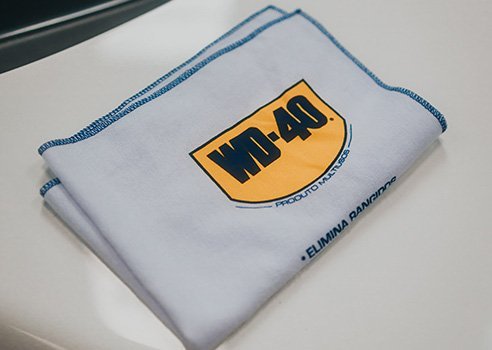Reading time: About 2 minutes
Today’s column describes why you’re never too old or too “untalented” to be able to write. Bottom line? It’s never too late to write.
I’m a bit of a foodie so it makes me blush to hold up Kentucky Fried Chicken as an example of anything that’s good or interesting. But did you know that Colonel Sanders didn’t start franchising his KFC restaurants until he was sixty-five years old? Sixty-five!! This was some 40 years after he started serving chicken at his service station.
You may also be unfamiliar with the story of Norm Larsen, the self-taught chemist who invented WD-40. Did you know that the very name of his invention celebrates his own initial lack of success? The WD part means “water displacement” which is what the spray does, but the “40” indicates he had 39 failures before he found a formula that worked. I love that Larsen was cheeky enough to work that into his product name.
When it comes to writing, we tend to think the “successful” writers are either people who are young or who don’t experience failure first. We romanticize Percy Bysshe Shelley, and Lord Byron who were dead by ages 29 and 36 respectively. Or, more contemporarily, we praise British author Zadie Smith who published her award-winning novel, White Teeth, when she was 25. Then, perhaps, we heap kudos on American Bret Easton Ellis, who released his first novel, Less Than Zero, when he was only 21.
But despite the awards and all the attention lauded on young writers, being a “late bloomer” is something of a literary tradition.
For example, English “writer, journalist and pamphleteer” Daniel Defoe (1659-1731) started his working life as a general merchant. At different times he dealt in hosiery, general woolen goods, and wine. His first notable piece of writing, An Essay upon Projects, wasn’t published until 1697 when he was 37. And his popular novel, Robinson Crusoe, didn’t appear until he was 59!
Contemporary Scottish writer Isla Dewar started her writing career as a journalist but had a tough time summoning the courage to attempt a novel. Nevertheless, when she was 44, she released Keeping Up With Magda and found huge success the very next year with Women Talking Dirty (which was adapted into a film starring Helena Bonham Carter.)
Canadian author Mary Lawson was 56 when she published her first book, the magnificent Crow Lake. (I don’t like her second novel nearly as much but I recommend Crow Lake without reservation.)
For anyone who has ever struggled with writing or who has felt that, perhaps, it’s too late, I urge you to remember Defoe, Dewar and Lawson and forge ahead. While our society favours the young, recent changes in publishing — the existence of blogs, email newsletters and print-on-demand publishing — have made it easier than ever to get your words into the public domain. The trick is, you have to write them first!
Whatever your age, it’s easy to forget that perseverance is an essential element of just about any success. I know many extraordinarily talented people who have accomplished little. Yet, at the same time, I know many much more modestly talented who have had been determined to succeed. And they have.
Bottom line? Age doesn’t matter. Talent doesn’t matter. What matters is the work you do.


